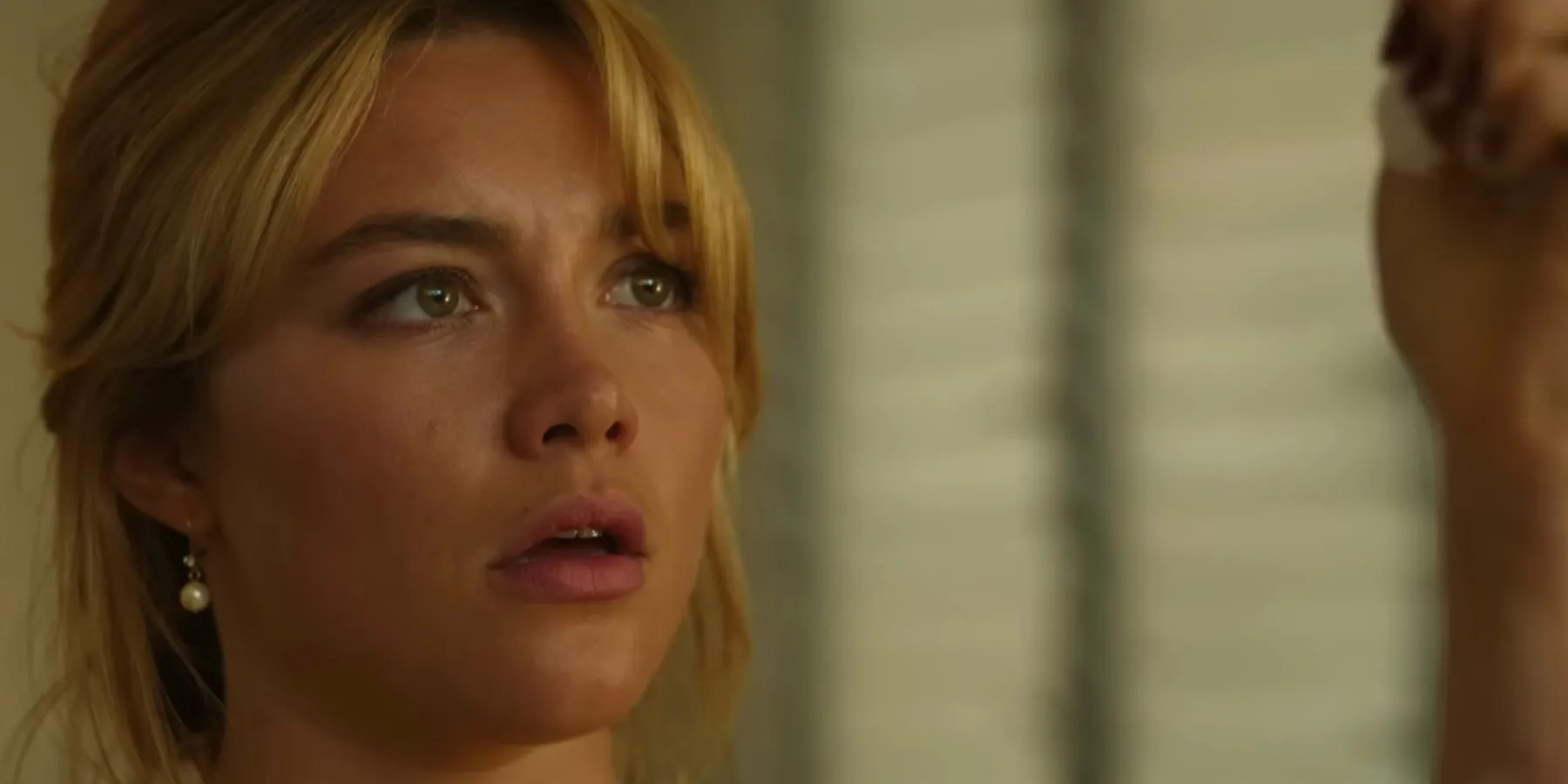In a world where psychological thrillers and dramatic narratives often challenge our perceptions of reality, "Don't Worry Darling" stands out as a cinematic experience that leaves audiences questioning what they just witnessed. The film, directed by Olivia Wilde and featuring a stellar cast, delves into the complexities of love, control, and the pursuit of happiness within a seemingly perfect community. As viewers are drawn into the intricacies of the plot, the ending becomes a focal point of discussion, inviting interpretations and theories that spark curiosity and debate.
The film’s climax is not just a twist; it is a culmination of various themes that have been meticulously woven throughout the story. As the narrative unfolds, it becomes evident that the idyllic life portrayed in the film may not be as flawless as it seems. Consequently, the "Don't Worry Darling" ending raises questions about the nature of freedom, the dynamics of relationships, and the sacrifices made for the sake of perceived happiness. The shocking conclusion leaves viewers reflecting on the implications of the choices made by the characters, particularly the protagonist, Alice, played by Florence Pugh.
As we delve deeper into the film's resolution, it is essential to explore the various elements that contribute to the powerful impact of the ending. From the character development to the underlying themes of societal expectations, "Don't Worry Darling" invites audiences to engage in a narrative that is both thought-provoking and emotionally charged. In this article, we will dissect the film's conclusion, analyze the character arcs, and discuss the broader implications of the story that linger long after the credits roll.
What is the Premise of Don't Worry Darling?
"Don't Worry Darling" is set in the 1950s and revolves around Alice, a housewife living in a utopian community known as Victory. On the surface, life appears perfect—filled with glamorous parties and doting husbands. However, as Alice begins to uncover secrets about her husband Jack (played by Harry Styles) and the true nature of their reality, she finds herself embroiled in a disturbing mystery. The film explores themes of conformity, the illusion of perfection, and the quest for personal freedom.
Who Are the Key Characters in Don't Worry Darling?
| Character | Actor | Role |
|---|---|---|
| Alice | Florence Pugh | Protagonist, a housewife seeking the truth |
| Jack | Harry Styles | Alice's husband, who harbors dark secrets |
| Frank | Chris Pine | Leader of the Victory community, enigmatic figure |
| Margaret | Kate Berlant | Alice's friend, who hints at the community's dark reality |
What Themes Are Explored in the Don't Worry Darling Ending?
The ending of "Don't Worry Darling" encapsulates several potent themes that echo throughout the film:
- Control and Manipulation: The narrative raises questions about who holds power and how that power is wielded.
- Illusion vs. Reality: The stark contrast between the idyllic life in Victory and the grim truths lurking beneath the surface is a central theme.
- Feminism and Freedom: Alice's journey symbolizes the struggle for autonomy in a male-dominated society.
- Love and Sacrifice: The film poses moral dilemmas regarding love and the sacrifices one is willing to make for it.
How Does the Ending of Don't Worry Darling Unfold?
As the film reaches its climax, Alice confronts the unsettling truths about her existence in Victory. The shocking revelations about Jack and the community's underlying workings culminate in a dramatic showdown. The audience is left with a series of questions about the nature of reality and the cost of happiness. The ending is deliberately ambiguous, allowing viewers to interpret it through their lens, leading to diverse opinions and discussions about its meaning.
What Are the Reactions to the Don't Worry Darling Ending?
The conclusion of "Don't Worry Darling" has sparked widespread debate among audiences and critics alike. Some viewers appreciate the film's boldness, applauding its exploration of deep societal issues, while others criticize it for its lack of clarity. Reactions have included:
- Admiration for Florence Pugh's performance and the emotional depth she brings to Alice.
- Speculation about the film's commentary on modern relationships and societal norms.
- Discussions about the film's feminist undertones and its portrayal of women's struggles for autonomy.
Does the Ending Leave Room for a Sequel or Continuation?
While "Don't Worry Darling" concludes with a sense of finality, the open-ended nature of the resolution leaves potential for further exploration. Viewers have speculated about the possibility of a sequel that delves deeper into the characters' lives post-Victory. Such a continuation could explore the ramifications of Alice's choices and the broader societal implications of the revelations made throughout the film.
What Can We Learn from the Don't Worry Darling Ending?
The ending of "Don't Worry Darling" serves as a powerful reminder of the complexities of human relationships and the dangers of complacency. It encourages viewers to question the narratives they accept and to seek the truth, even when it is uncomfortable. The film's resolution resonates with themes of empowerment, self-discovery, and the ongoing struggle for autonomy in a society that often seeks to control individuals.
In Conclusion: What Makes Don't Worry Darling's Ending Memorable?
The "Don't Worry Darling" ending is memorable not only for its shocking twists but also for the profound questions it raises about love, control, and the pursuit of happiness. It invites audiences to reflect on their own lives and the societal structures that shape their realities. As viewers continue to dissect and discuss the film's conclusion, it solidifies its place in contemporary cinema as a thought-provoking piece that challenges perceptions and evokes emotion long after the credits roll.
Phyllis Stephens: A Journey Through Her Life And Legacy
Unveiling The Stars: The Talented Actors Of Two And A Half Men
Exploring The Magical World Of Disney Cartoon Characters


